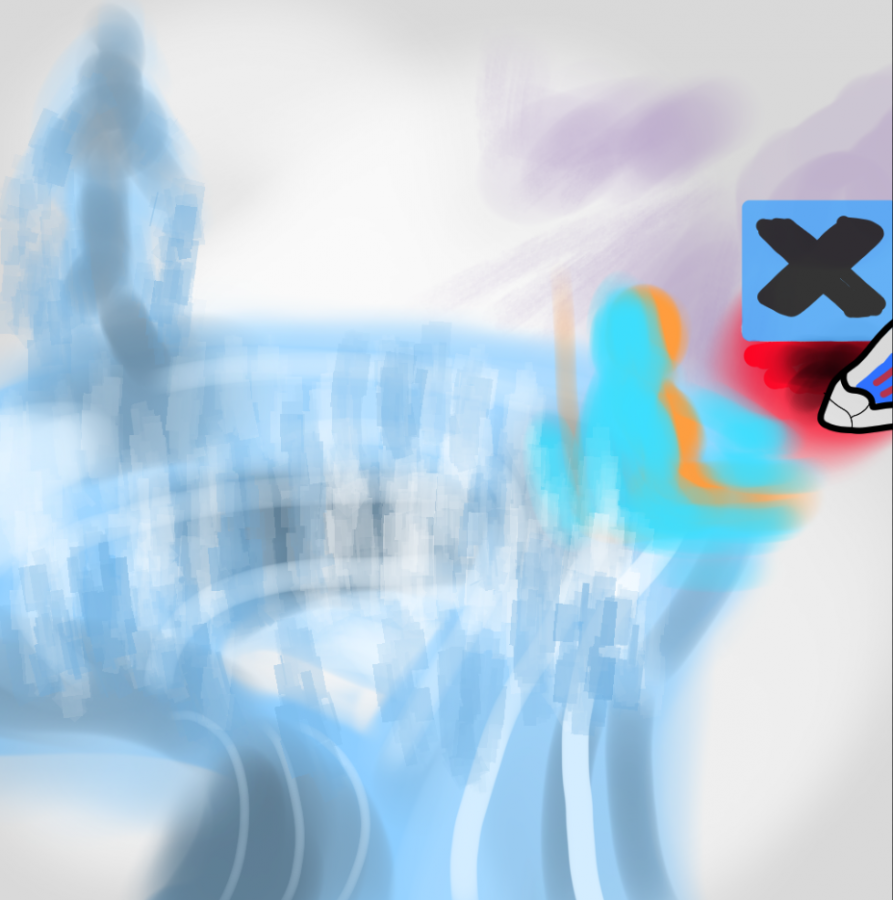Search for the greatest album: OK Computer by Radiohead
One Evergreen columnist embarks on quest to find greatest album in history; this week, he analyzes Radiohead
February 4, 2021
For generations, our ancestors have been performing and creating musical compositions. How harmonious vibrations can soothe the human brain into multiple emotions is uncanny compared to any other art form.
Since Beethoven, music has evolved into different genres with technological advancements from scientists and creativity from artists.
Since the beginning of my high school years, I have listened to hundreds of albums, trying to find the greatest album humanity has to offer. This series will be dedicated to these very albums, as I analyze them thoroughly to figure out what the greatest album truly is. Today, we will be looking at Radiohead’s “OK Computer,” released in 1997.
Radiohead is an alternative rock band formed in Oxfordshire, England in 1985, led by vocalist Thom Yorke. Ever since 1993, they have been releasing high-quality material that, to this day, still has not lost its touch of the original sound.
Up to this point in Radiohead’s discography, the band released two albums: “Pablo Honey” in 1993, and “The Bends” in 1995. Their first record received mediocre reviews, while the latter received critical acclaim, marking the beginning of Radiohead’s expansion of their sound.
After a couple of years of them releasing material, they finally released “OK Computer” in 1997 to widespread critical acclaim. Some music critics say it is the best album of all time, but is it that perfect?
Yorke’s lyrics throughout the album paint an incredibly bleak picture of the reality of modern society. The lyrics describe what it is like for a person to live in a capitalist society, constantly traveling to their nine-to-five jobs every weekday just to sit at a desk and then repeat the process until they die. In essence, the lyrics question whether we are truly happy with what our lives have become in modern society.
The track “Fitter Happier” captures the entire meaning of the album in one song, which includes a text-to-speech robot reading the actions of what many people experience every day.
“Not drinking too much
Regular exercise at the gym (3 days a week)
Getting on better with your associate employee contemporaries
At ease
Eating well (no more microwave dinners and saturated fats)
A patient, better driver
A safer car (baby smiling in back seat)
Sleeping well (no bad dreams)
No paranoia”
Not only do the lyrics nihilistically construe how most people live the same lives every single day, but the band’s choice to utilize a robotic voice helps illustrate the engineered life most people have. The lives of the workers lack no individuality, they act as a simple cog for someone else’s machine.
Pretty much all the tracks are produced with a “wall of sound” production style, with intricate layers of guitars, percussion and electronic noises to accompany each piece, painting a bleak atmosphere. This atmosphere is most apparent in the first track, “Airbag.”
The piece contains multiple guitar parts and other sounds, such as record scratches and electronic pulses that blend beautifully into each other. The song sounds almost spiritual, which helps illustrate the song’s explanation of how near-death experiences make us feel alive.
Soft melodies from Jonny Greenwood’s guitar help simultaneously soothe the listener and fill them with dread, especially in tracks like “Karma Police,” “No Surprises” and “The Tourist.” None of these tracks come close, however, to the complexity of “Paranoid Android.”
The nearly six-and-a-half-minute-long song is divided into three distinct parts: a calm guitar piece with additional maracas and percussion; an angry, heavily distorted release of rage; and a sad, heartfelt acoustic section before falling back to the sound of the second part.
The song is as if “Bohemian Rhapsody” became grungier and Freddie Mercury began a mid-life crisis while falling into a deep depression.
Radiohead’s exploration of modern society, coupled with its “wall of sound” production, immediately placed them on the board of one of history’s greatest bands.
Their 1997 release played a role in expanding the sound of alternative rock out from the post-grunge sound that typically defined that period in music.
While some slow parts may feel boring, like the beginning to “Exit Music (For a Film),” the record rewards the audience with a completely eye-opening experience that will leave the listener looking at the world around them from a bleaker perspective.
Score: 9/10











Generic Student • Feb 8, 2021 at 6:09 pm
Totally epic